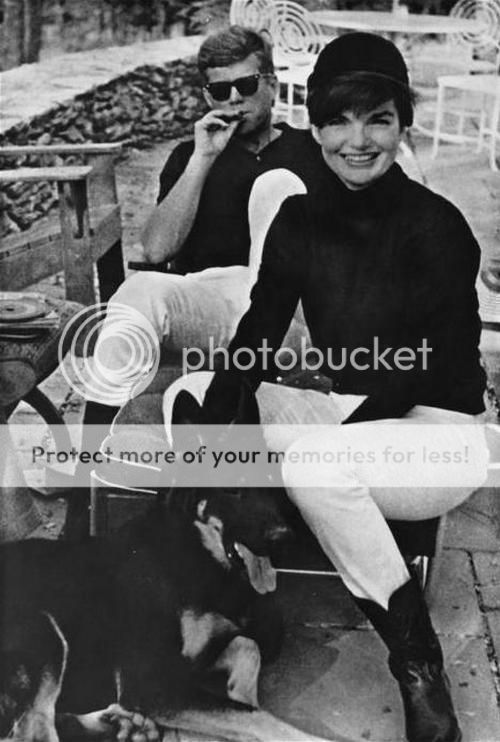Bfgrn
Gold Member
- Apr 4, 2009
- 16,829
- 2,496
- 245
RFK did not like at all how his party,especially Mayor Daley handled the demonstrators at the Chicago Convention in 69.....so yea i am sure there would have been some changes....
RFK died 45 years ago today, June 6th, 1968. The Democratic Convention began in Chicago August 26, 1968.
Try AGAIN...
whoops i fucked that up....thinking of 2 different instances.....got the people mixed up.......sorry.....ok let me re say this.......in 1967 Phil Ochs was asked to come with RFK on his plane.....Phil told Kennedy that he was getting real disenchanted with the "Elite" of the party....Robert wanted to know why......Phil said he did not like how they treated People......they are Hypercritical.........and according to Ed Sanders who was also on that flight... .Robert was in agreement with him.....that he had seen that too.....and then at the Convention.....they treated the protesters just like Phil said Right Wingers would......it was also said that The Mayor told the Police if need be....Shoot the bastards......this is all documented in the documentary film Phil Ochs: There but for Fortune which i saw on PBS a few months ago.....
I didn't see the documentary. I don't know who the 'elite' of the party were Ochs was referring to. But liberals are no fans of Richard J. Daley. And the circumstances at the convention had pretext.
The year 1968 was a momentous year for Daley. In April, Daley was castigated by many for his sharp rhetoric in the aftermath of rioting that took place after Martin Luther King, Jr.'s assassination. Displeased with what he saw as an overly cautious police response to the rioting, Daley chastised police superintendent James B. Conlisk and subsequently related that conversation at a City Hall press conference as follows:
"I said to him very emphatically and very definitely that an order be issued by him immediately to shoot to kill any arsonist or anyone with a Molotov cocktail in his hand, because they're potential murderers, and to shoot to maim or cripple anyone looting."
This statement generated significant controversy. Daley's supporters deluged his office with grateful letters and telegrams (nearly 4,500 according to Time Magazine), and it has been credited for Chicago's being one of the cities least affected by the riots. But others were appalled. Rev. Jesse Jackson, for example, called it "a fascist's response." The Mayor later backed away from his words in an address to the City Council, saying:
"It is the established policy of the police department fully supported by this administration that only the minimum force necessary be used by policemen in carrying out their duties."
Later that month, Daley asserted "There wasn't any shoot-to-kill order. That was a fabrication."
In August, the 1968 Democratic National Convention was held in Chicago. Intended to showcase Daley's achievements to national Democrats and the news media, the proceedings during the convention instead garnered notoriety for the mayor and city, descending into verbal outbursts on the part of politicians, and a circus for the media.
With the nation divided by the Vietnam War and with the assassinations of King and Robert F. Kennedy earlier that year serving as backdrop, the city became a battleground for anti-war protesters who vowed to shut down the convention. In some cases, confrontations between protesters and police turned violent, with images of this violence broadcast on national television. Later, radical activists Abbie Hoffman, Jerry Rubin, and three other members of the "Chicago Seven" were convicted of crossing state lines with the intent of inciting a riot as a result of these confrontations, though the convictions were overturned on appeal.
At the convention itself, Sen. Abraham A. Ribicoff (D-Conn.), went off-script during his speech nominating George McGovern, saying, "And with George McGovern as President of the United States, we wouldnt have to have Gestapo tactics in the streets of Chicago. And with George McGovern as president, we wouldn't have to have a national guard." Ribicoff, with his voice shaking, then said: "How hard it is to speak the truth, when we know the problems that are facing this nation", in which the crowd booed Ribicoff. Ribicoff also tried to introduce a motion to shut down the convention and move it to another city. Many conventioneers applauded Ribicoff's remarks but an indignant Mayor Daley tried to shout down the speaker. As television cameras focused on Daley, lip-readers throughout America claimed to have observed him shouting, "Fuck you, you Jew son of a bitch." Defenders of the mayor would later claim that he was calling Ribicoff a faker, a charge denied by Daley and refuted by Mike Royko's reporting. A federal commission, led by local attorney, party activist Daniel Walker, investigated the events surrounding the convention and described them as a "police riot." Daley defended his police force with the following statement, which was also a slip of the tongue: "The confrontation was not caused by the police. The confrontation was caused by those who charged the police. Gentlemen, let's get this thing straight, once and for all. The policeman is not here to create disorder. The policeman is here to preserve disorder."
Despite a decline in popularity following 1968, Daley was historically re-elected for the fifth time in 1971. However, many have argued this was due to a lack of formidable opposition rather than Daley's own popularity.
In 1972, Democratic nominee George McGovern threw Daley out of the Democratic National Convention (replacing his delegation with one led by Jesse Jackson). wiki






